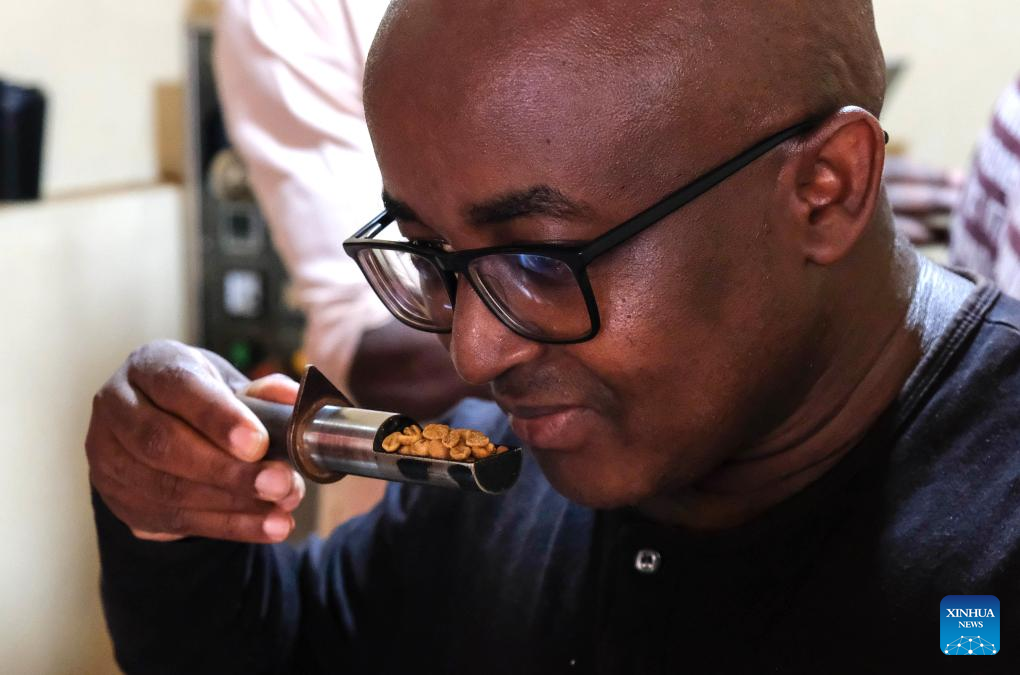
Gerald Katabazi, a Ugandan coffee businessman, checks on a batch of freshly roasted coffee beans at his coffee roastery in Kampala, Uganda on Aug. 7, 2023. (Photo by Hajarah Nalwadda/Xinhua)
KAMPALA, Aug. 9 (Xinhua) -- Delegates from Africa's 25 coffee-producing countries are meeting in the Ugandan capital of Kampala with the aim of influencing the African Union to make coffee a priority crop on the continent that will pull millions of people out of poverty.
Experts argue that once the continent's political leadership understands the power of coffee in transforming economies, it will bolster the continent's efforts to internally trade the "strategic commodity" but also speak with a united force on the international market.
The meeting, dubbed the 2nd G-25 Heads of State Africa Coffee Summit, is convening from Aug. 7 to Aug. 10 under the theme "Transforming the African Coffee Sector through Value Addition," which is in line with the theme of the 2023 African Union agenda that focuses on accelerating the implementation of the African Continental Free Trade Area (AfCFTA).
Ezra Suruma, Uganda's former finance minister and an economist, told Xinhua in a recent interview that the 25 coffee-producing countries meeting together to speak with one voice is a major step in efforts to influence the international market.
"Coming together like for example petroleum countries have been coming together and influencing, we would also have more influence on the product that we have," Suruma said.
Ugandan President Yoweri Museveni said at the meeting that Africa is losing a lot of income to the international market that continues to prefer taking coffee in its raw form. He told the delegates that out of the 460-billion-U.S.-dollar global coffee value, the coffee-producing countries only take 25 billion dollars and Africa gets only 2.4 billion dollars.
"A non-coffee producing country like Germany earns 6.85 billion dollars!! This is part of the iniquities of the present global parasitic system," Museveni said.
The president said Africa must stop exporting products in their raw form but add value so that they can fetch more foreign exchange that can be used to fast track development.
Ethiopian President Sahle-Work Zewde urged international coffee trading companies to support coffee-producing African farmers technically and financially in the value-addition process.
Zewde said Africa should have a united and coordinated promotion of African coffee and fair price for the product in the global market.
Solomon Rutega, secretary general of the Inter-African Coffee Organization, said the coffee-producing countries have embarked on urging the non-coffee-producing countries to buy from them.
He said there are talks with South Africa which largely buys its coffee from Brazil, adding that countries in the Maghreb region including Algeria and Morocco have been urged to buy coffee directly from Africa instead of buying from Europe.
Rutega said Africa is also looking at emerging markets like China where it can sell coffee as a finished product.
Gerald Katabazi, a Ugandan coffee businessman said all efforts made to boost coffee earnings are good at the policy level but countries need to take an extra step to address the logistical challenges that the traders face. Also, countries still have many non-tariff barriers which affect trade, he said.
Rutega is optimistic that the coming into force of the AfCFTA agreement will help address some of the non-tariff barriers.
The World Bank estimates that the AfCFTA will increase Africa's income by 450 billion dollars by 2035 and increase intra-African exports by more than 81 percent. According to the UN Economic Commission for Africa, this single market trade agreement will enable the African economy to reach the 29-trillion-dollar mark by 2050. ■
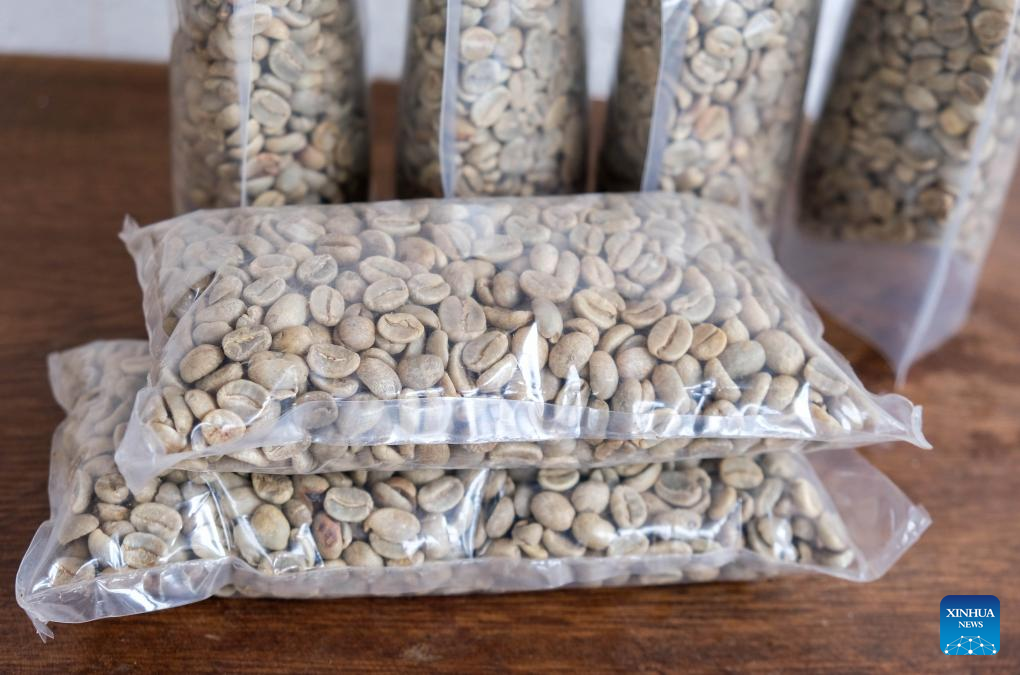
This photo taken on Aug. 7, 2023 shows samples of raw coffee beans at a local coffee roastery created by Gerald Katabazi in Kampala, Uganda. (Photo by Hajarah Nalwadda/Xinhua)
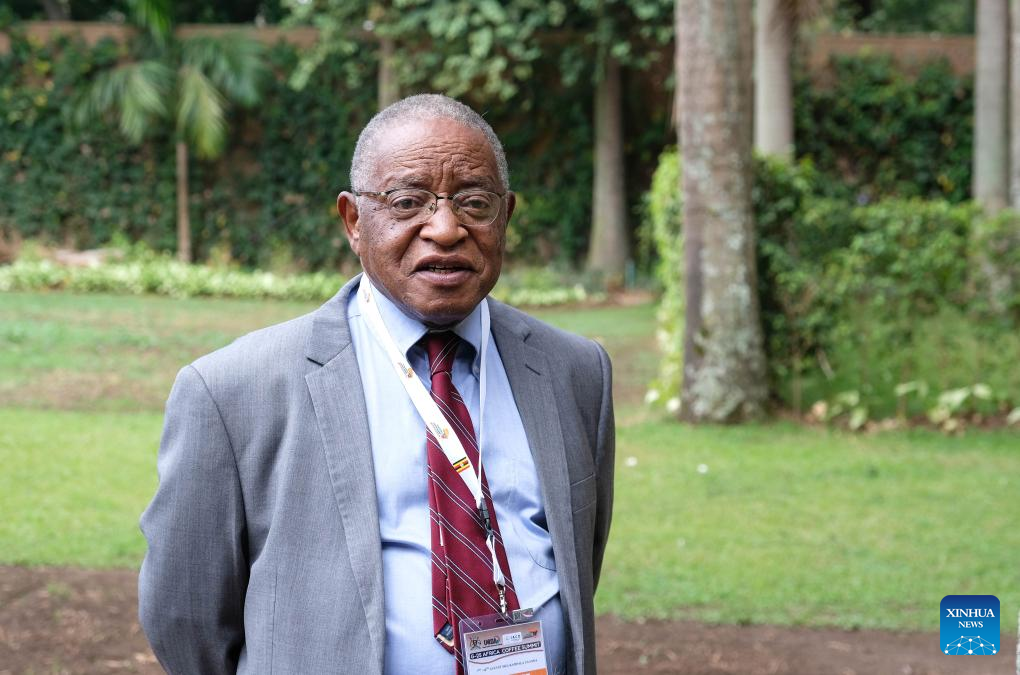
Ezra Suruma, Uganda's former finance minister and an economist, speaks to Xinhua on the sidelines of the 2nd G-25 Heads of State Africa Coffee Summit in Kampala, Uganda on Aug. 7, 2023. (Photo by Hajarah Nalwadda/Xinhua)
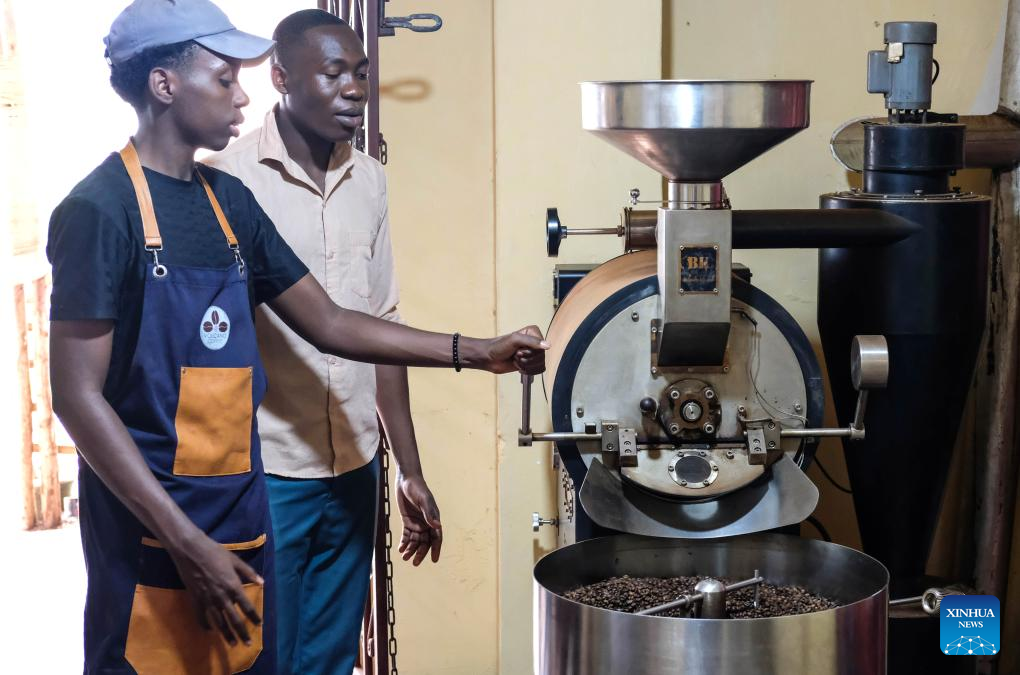
Workers roast coffee beans with a machine at the coffee roastery created by Gerald Katabazi in Kampala, Uganda on Aug. 7, 2023. (Photo by Hajarah Nalwadda/Xinhua)
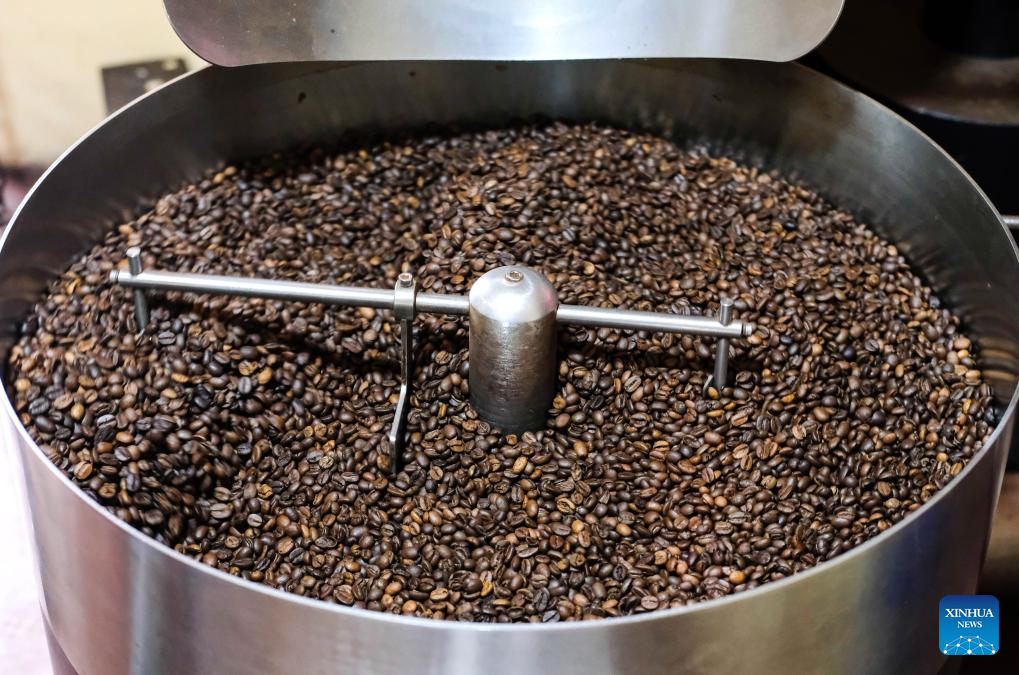
This photo taken on Aug. 7, 2023 shows coffee beans in roasting process at a local coffee roastery created by Gerald Katabazi in Kampala, Uganda. (Photo by Hajarah Nalwadda/Xinhua)
